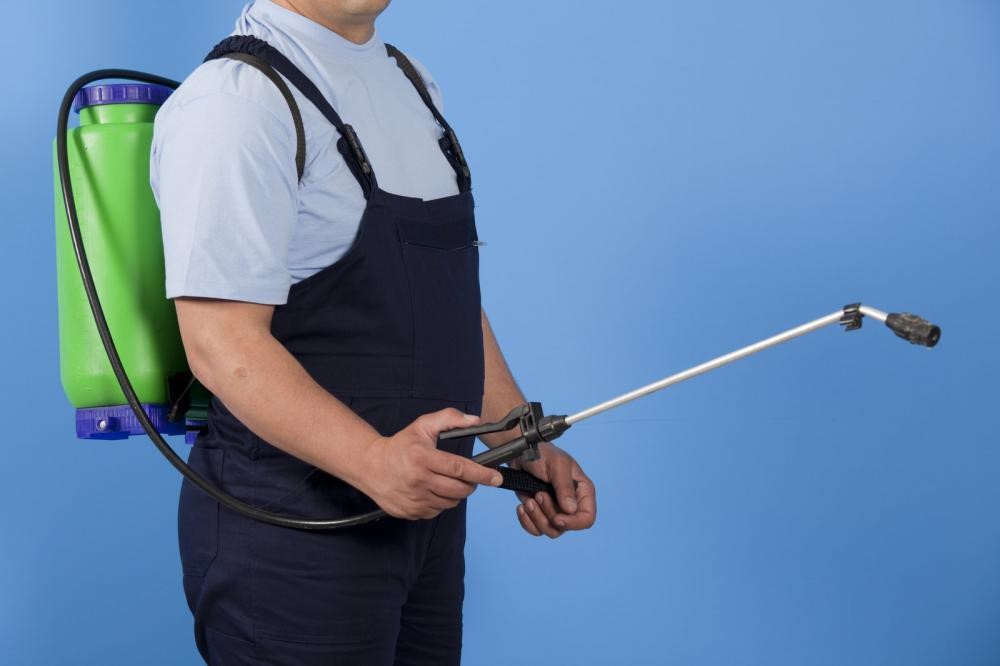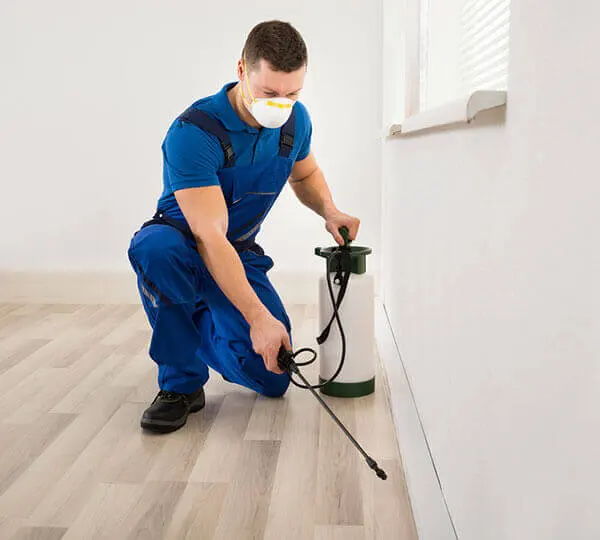Comprehending the Numerous Techniques to Parasite Control: A Comprehensive Overview

Natural Insect Control Techniques
Employing green strategies such as buddy growing and organic pest control is vital for efficiently managing parasites in farming settings. Friend planting involves expanding different plants in distance to deter parasites, improve nutrient uptake, and boost general crop wellness.
Biological pest control entails introducing all-natural predators or virus to manage pest populations. Ladybugs, as an example, feed upon aphids, regulating their numbers without the requirement for chemical pesticides. An additional example is making use of Bacillus thuringiensis (Bt), a germs that targets details insect bugs while being safe to people, pets, and helpful pests.
These environment-friendly methods not only decrease the dependence on artificial pesticides however additionally aid protect biodiversity and soil health. By including natural bug control strategies into farming practices, farmers can accomplish lasting bug management while lessening adverse impacts on the atmosphere.

Chemical Insect Control Solutions
In addition to all-natural parasite control methods, the usage of chemical insect control options plays a significant role in efficiently handling pest populations in agricultural atmospheres. Chemical bug control options are created to target details pests that may cause comprehensive damage to plants. These solutions typically consist of artificial chemicals that are created to remove parasites promptly and successfully.
Among the crucial advantages of chemical bug control options is their efficiency in managing insect infestations on a large scale. Farmers can apply these options utilizing various methods such as splashing, airing out, or seed therapy to safeguard their crops from hazardous pests, weeds, and illness. Furthermore, chemical insect control solutions are reasonably very easy to apply and can offer rapid outcomes, assisting farmers secure their returns and reduce economic losses.
Nonetheless, it is necessary to use chemical parasite control options deliberately to decrease prospective adverse effect on the setting, non-target organisms, and human wellness. Proper application strategies, adherence to safety standards, and regular surveillance are important to ensure the accountable usage of chemical insect control remedies in agricultural methods.
Organic Insect Control Approaches
Biological bug control comes close to utilize all-natural killers or microorganisms to handle parasite populations in agricultural setups successfully. One usual organic control approach is the intro of all-natural adversaries, such as ladybugs or parasitic wasps, to target certain parasites.
An additional organic control method entails making use of virus like microorganisms, fungis, or viruses to contaminate and eliminate bugs. These microbial representatives can be sprayed on crops or introduced right into the dirt to deal with different insects without harming advantageous insects or other wild animals. Furthermore, the use of pheromones to disrupt image source the breeding patterns of bugs is one more effective organic control method. By hindering their recreation, this technique helps to reduce parasite populations without the need for chemical treatment. Generally, biological pest control methods offer a click this lasting and targeted option to pest management in farming.
Integrated Insect Monitoring (IPM)
Integrated Insect Monitoring (IPM) is a detailed approach that incorporates different parasite control techniques to properly manage and lessen pest populaces in agricultural systems. IPM focuses on lasting prevention of insects with a combination of biological, social, physical, and chemical control approaches. By integrating these different techniques, IPM intends to reduce reliance on chemical pesticides, reduce ecological effect, and advertise sustainable insect administration techniques.
One trick aspect of IPM is the use of biological controls such as all-natural killers, bloodsuckers, and virus to control insect populaces. This approach uses the power of nature to maintain a balance in between insects and their all-natural opponents without creating injury to the setting.
Additionally, IPM involves cultural practices like crop rotation, habitat, and cleanliness manipulation to create unfavorable conditions for pests and interrupt their life process. Physical controls such as traps, mulches, and obstacles are likewise used to stop insect invasions.
Mechanical and Physical Insect Control Techniques
Making use of non-chemical approaches, such as physical and mechanical bug control methods, is a crucial facet of thorough bug administration techniques, building upon the structure of Integrated Insect Management's alternative technique. Mechanical insect control involves making use of physical barriers or catches to avoid insects from accessing and harming crops or structures. This i was reading this approach can include techniques like mounting screens on windows, using row covers in farming, or employing sticky catches to catch pests.
Physical insect control methods, on the other hand, concentrate on directly removing insects via physical ways. Utilizing warmth treatments to remove bed bugs or vacuuming up parasites like ants or crawlers can be reliable ways to take care of infestations without the use of chemicals. By including these mechanical and physical bug control strategies into an Integrated Pest Management strategy, individuals and experts can decrease reliance on chemicals while still effectively lessening and managing pest populaces damages.
Final Thought

In enhancement to all-natural insect control approaches, the utilization of chemical insect control remedies plays a considerable function in successfully taking care of pest populaces in farming environments.One of the vital benefits of chemical insect control services is their effectiveness in regulating insect problems on a big scale.Integrated Insect Administration (IPM) is a detailed technique that incorporates different pest control methods to efficiently handle and lessen pest populaces in agricultural systems.Utilizing non-chemical approaches, such as physical and mechanical insect control strategies, is an essential element of comprehensive parasite monitoring strategies, building upon the structure of Integrated Parasite Administration's all natural approach. By incorporating these physical and mechanical bug control strategies into an Integrated Insect Monitoring strategy, individuals and specialists can minimize dependence on chemicals while still effectively handling pest populaces and minimizing damage.